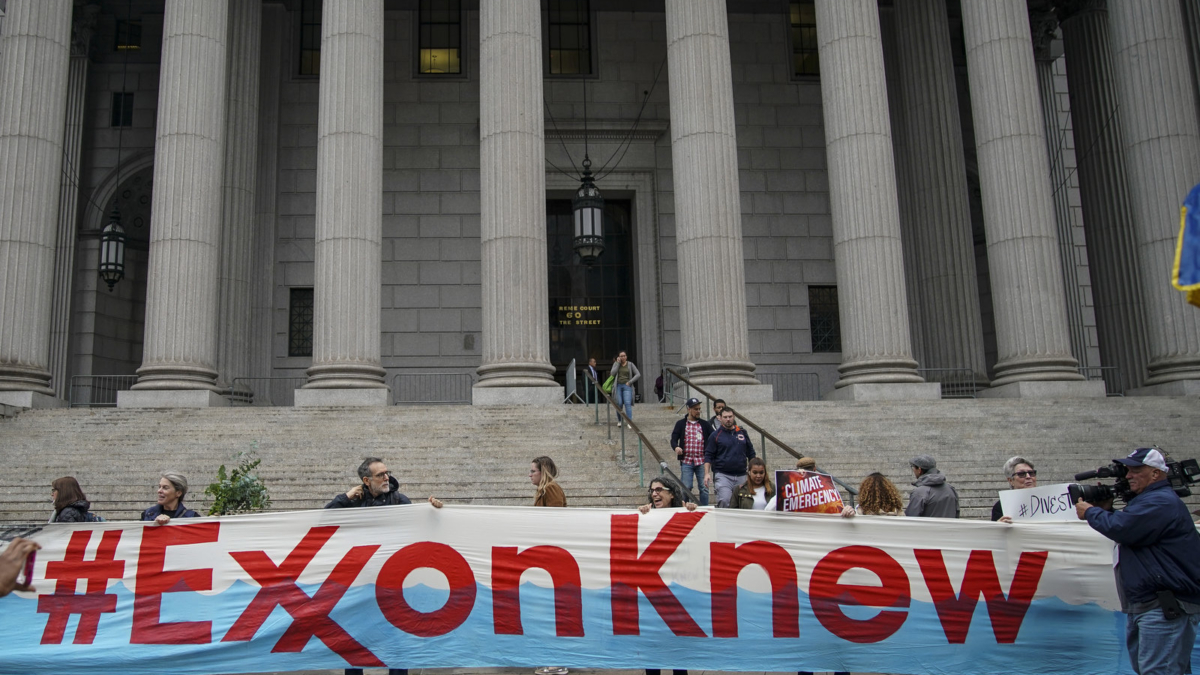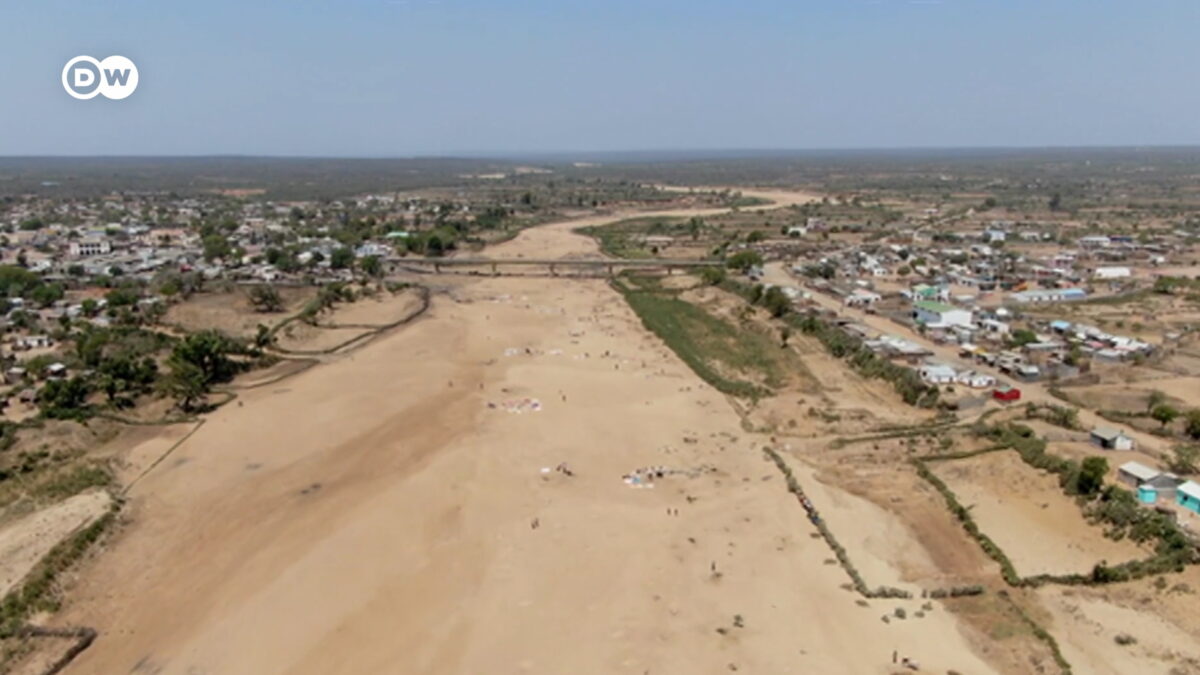“What death smells like”: Dorian’s toll expected to soar in Bahamas – Official warns people to prepare for the “unimaginable” – “Literally hundreds, up to thousands, of people are still missing”
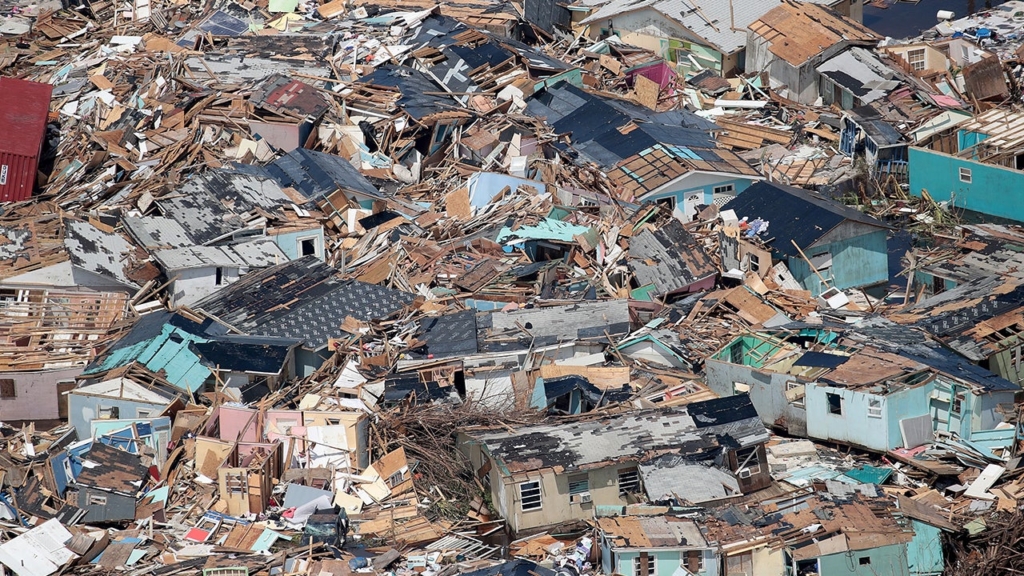
By Nick Brown
6 September 2019
MARSH HARBOUR, Bahamas (Reuters) – The smell of death hangs over parts of Great Abaco Island in the northern Bahamas, where relief workers on Friday sifted through the debris of shattered homes and buildings in a search expected to dramatically drive up the death toll from Hurricane Dorian.
Dorian, the most powerful hurricane to ever hit the Bahamas, swept through the Abaco Islands and Grand Bahama Island earlier this week, leveling entire neighborhoods and knocking out key infrastructure, including airport landing strips and a hospital.
Hundreds, if not thousands, of people are still missing, and officials say the death toll, which currently stands at 30, is likely to shoot up as more bodies are discovered in the ruins and floodwaters left behind by the storm.
“You smell the decomposing bodies as you walk through Marsh Harbour,” said Sandra Sweeting, 37, in an interview amid the wreckage on Great Abaco. “It’s everywhere. There are a lot of people who aren’t going to make it off this island.”
Some locals called the government’s initial official death toll a tragic underestimate.
“I work part-time in a funeral home, I know what death smells like,” said Anthony Thompson, 27. “There must be hundreds. Hundreds.”
Asked if any of his friends or family had perished, Thompson looked at the ground.
“I don’t want to ask, because there are people I still haven’t heard from,” he said. […]
Total insured and uninsured losses in the Bahamas amounted to $7 billion, including buildings and business interruptions, according to a preliminary estimate by Karen Clark & Co, a consultancy that provides catastrophic modeling and risk management services. [more]
‘What death smells like’: Dorian’s toll expected to soar in Bahamas
Bahamas official warns people to prepare for the ‘unimaginable’ as hurricane death toll rises to 30
By Dakin Andone, Madeline Holcombe and Holly Yan
6 September 2019
(CNN) – Officials in the Bahamas brought in more body bags and coolers as the death toll from Hurricane Dorian rose to 30 and hundreds remain missing.
The number of fatalities is expected to climb as the extent of the damage becomes clear.
“Literally hundreds, up to thousands, of people are still missing,” said Joy Jibrilu, director general of the country’s tourism and aviation ministry.
Body bags, additional morticians and refrigerated coolers to store bodies are being transported to Abaco and other affected areas, Health Minister Dr. Duane Sands told Guardian Radio 96.9 FM.
Four morticians in Abaco are embalming remains because officials have run out of coolers, he said.
“The public needs to prepare for unimaginable information about the death toll and the human suffering,” Sands said. “Make no bones about it, the numbers will be far higher,” he said.
“It is going to be significantly higher than that. And it’s just a matter of retrieving those bodies, making sure we understand how they died. It seems like we are splitting hairs, but not everyone who died, died in the storm.” […]
[more]
Bahamas official warns people to prepare for the ‘unimaginable’ as hurricane death toll rises to 30
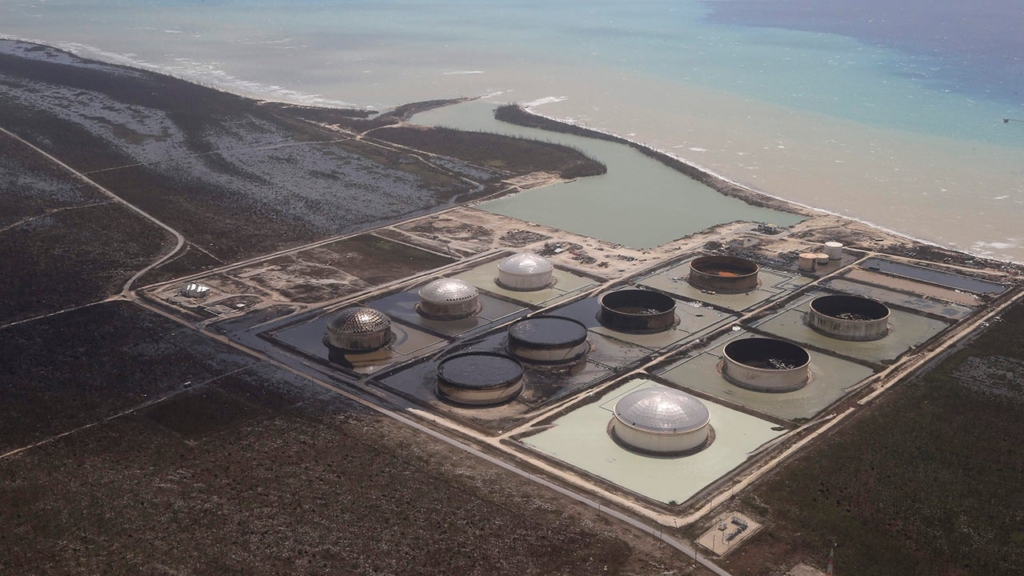
Bahamians lash out over disaster response: “We are on our own”
6 September 2019 (CBS News) – Officials in the Bahamas expect the death toll from Hurricane Dorian to rise “significantly.” The storm is blamed for at least 30 deaths so far, yet thousands are reported missing. Search and rescue missions continue around the clock. The U.S. Coast Guard says it has rescued more than 200 people.
Residents are expressing frustration and anger at Bahamian officials for not accelerating relief efforts on the islands, when thousands of homes have been damaged or destroyed. In the remote islands off Treasure Cay, residents there are completely cut off without cellphone service and electricity. Clean water and food is running out.
Most people are polite, but practically begging for help.
“CBS This Morning” lead national correspondent David Begnaud traveled with renowned chef José Andrés, whose nonprofit organization, World Central Kitchen, is delivering thousands of meals to these remote islands off Treasure Cay. […]
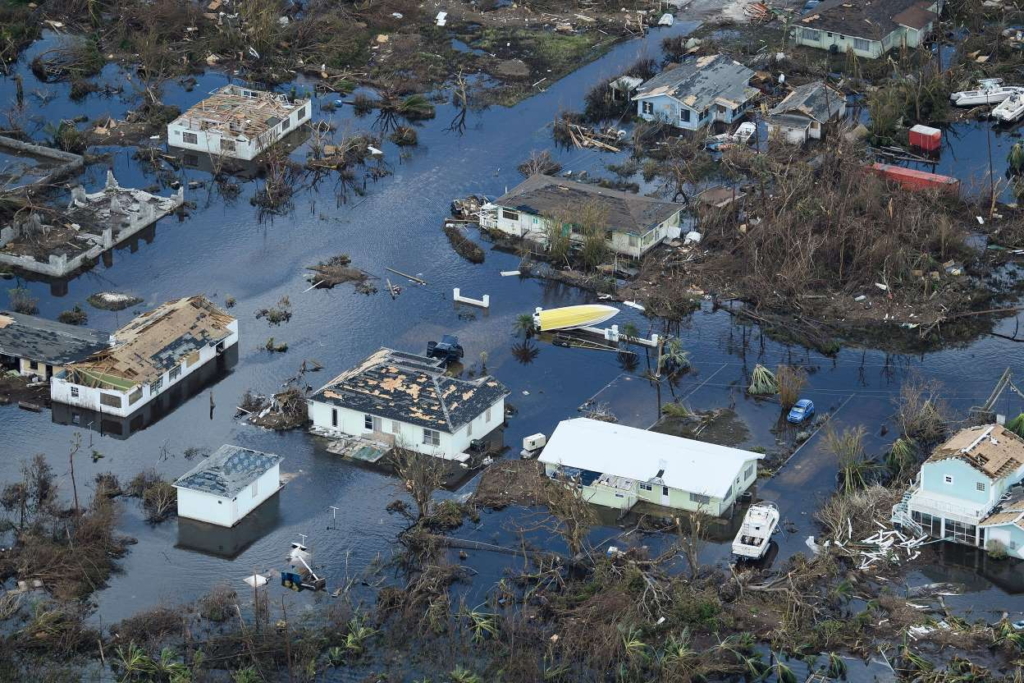
In this community of about 550 people, it looked as though most every structure was either damaged or destroyed, including the stores selling food.
“We need ice,” residents said. “We have no power. We need generators. We need help, a lot of help.” […]
Before leaving, Begnaud asked volunteer fireman Greg Johnson to assess the conditions.
“It’s deplorable,” Johnson said. “People are getting violent, angry, upset. And we’re trying to get our government officials. If you guys do see this, please come down here and show your faces. We need you guys to show your faces here, so the people can understand and know that you guys care.
“At this point in time, we are on our own, and the U.S. is the only place that is helping us.” [more]
Bahamians lash out over disaster response: “We are on our own”
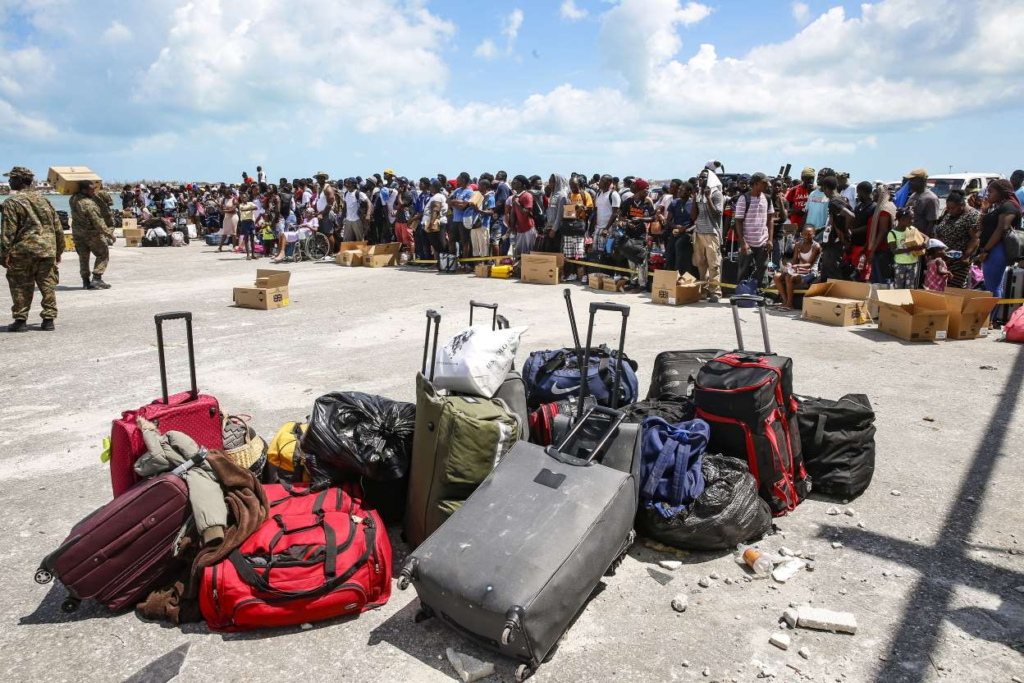
In the Bahamas after Hurricane Dorian, waiting for relief amid the bodies
By Anthony Faiola
5 September 2019
MARSH HARBOUR, Bahamas (The Washington Post) – The body is wearing shorts, its legs now bent at impossible angles, its face frozen in a bloated grimace, under what’s left of a collapsed cement roof. A man who knew him says his name was Sebely, and he was seeking shelter anywhere he could find it, just as hundreds of other poor residents in this town did when Hurricane Dorian struck.
“Six days! Six days and that body’s still here!” shouted Charite Alouivor, 55, a carpenter of Haitian descent. “Where are they? Where is the help? Where is the water? Where is the food? Where is the government? Why are there bodies still here?”
This port city of more than 6,000 was once home to quaint island businesses, wood-frame homes and one of the largest urban slums in the Bahamas. When Dorian struck, Marsh Harbour was ground zero, the point of impact of one of the strongest cyclones on record. The storm made landfall here as a Category 5 hurricane, a deadly tempest that leveled homes, crushed cars, crumpled boats and killed people.
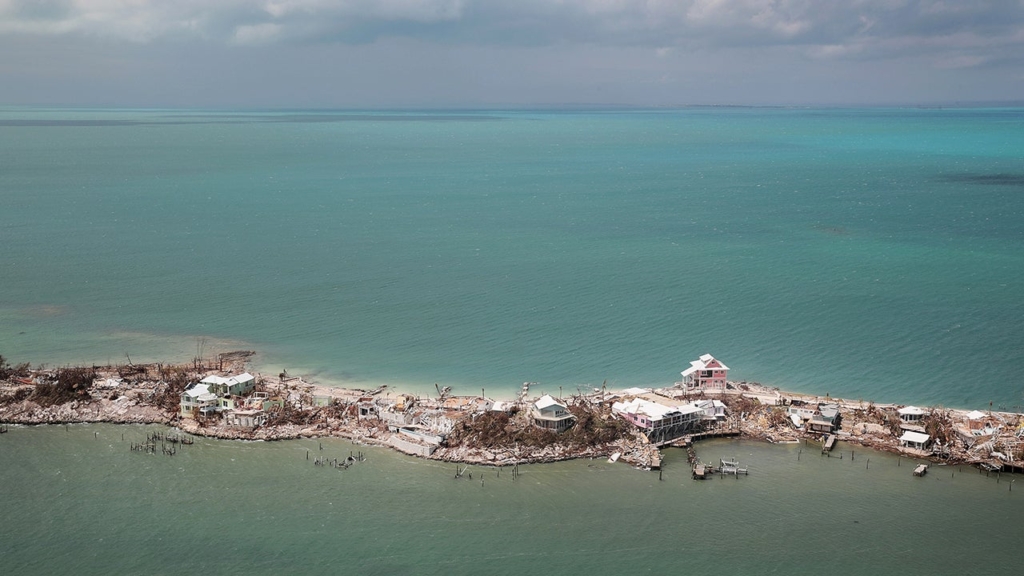
On Thursday, teams in hazmat suits were scouring Marsh Harbour, performing the grim, grueling duty of digging through the rubble for remains.
“There are more bodies over there in the Mudd,” said 12-year-old Ville Maurin. He pointed — through trees stripped bare and crushed — to the slum, which had been reduced to a field of dense debris.
He said he rode out the storm inside a refrigerator in his home.
“When I opened the door,” he said. “Oh Lord, oh Lord. Everything gone.” […]
“This is the worst I’ve seen in the Bahamas by far,” said Rear Adm. Eric Jones, commander of the Coast Guard’s 7th District in Miami. Storm surge and debris in many areas have prevented helicopters from landing, boats from navigating and trucks from driving.
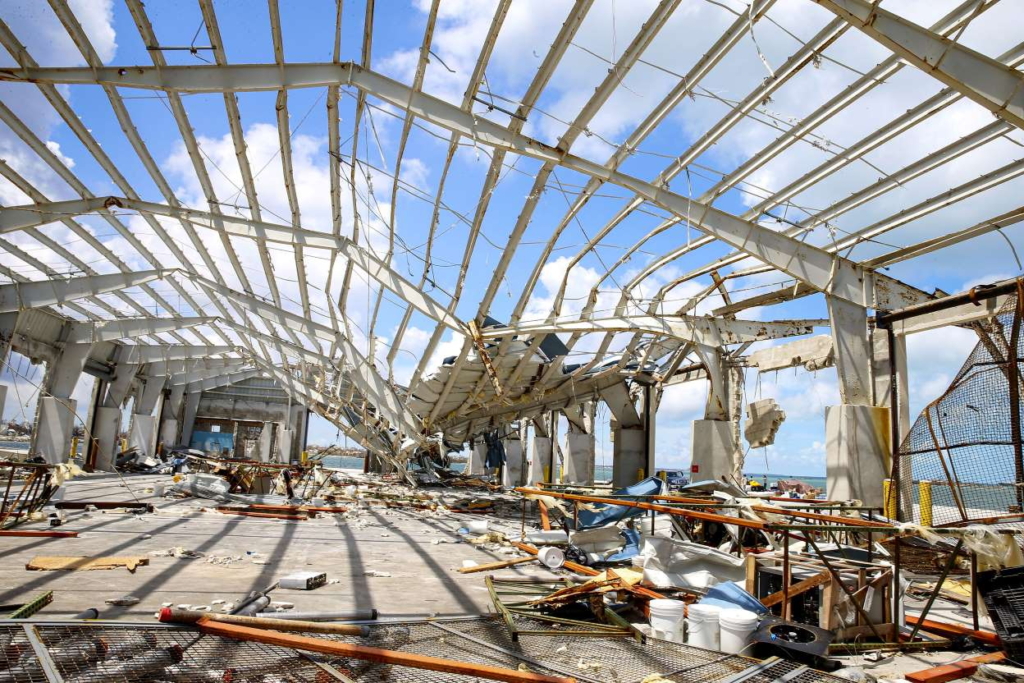
Marsh Harbour, the largest town on the northern island of Great Abaco, has laid bare the inequality in natural disaster.
Some wealthy islanders have paid private aviation firms upward of $20,000 to be airlifted out. But the people of the Mudd are stuck here. Some are squatting in broken, abandoned homes. Others are scrambling for floor space in shelters without steady food or water.
At night, residents say, the sound of gunfire has echoed through the wreckage. For days, there has been virtually no law in the streets. The only armed guards visible on a busy Thursday were the security personnel at a local hospital.
“The rich people, yeah, they can get out,” said Charlese McIntosh, a 33-year-old waitress whose house was totaled in the storm. “They take their friends, their family, in helicopters and small planes.”
“Physically, there’s just roads that aren’t there anymore,” Jones said. […]
Emmanuel Nelson, a 46-year-old tradesman, sat on the stoop of a house blown off its foundation. He and five other men are squatting there now.
“We have no aid. No one is helping us,” he said. He said they have gone house to abandoned house in search of food.
“This is survival,” he said. “We need to help ourselves.”
Some homeless islanders have sought shelter in a municipal building. Several said they were told Thursday to leave and find shelter elsewhere. Their accounts could not be immediately confirmed.
“Where am I sleeping tonight, huh?” said Javie Bienaimer, a 48-year-old repairman. “What am I supposed to eat? What are any of us supposed to eat? Come on, man. it’s been six days.” [more]
In the Bahamas after Hurricane Dorian, waiting for relief amid the bodies
